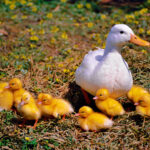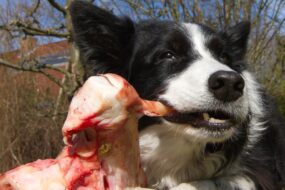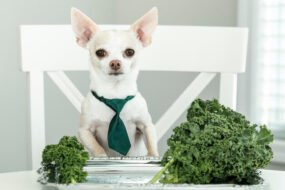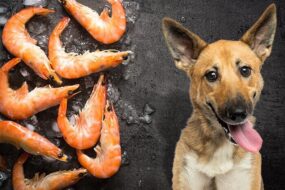
Many dog owners wonder which human foods are safe for their furry friends. Cheese, a popular snack, sometimes makes its way into the curious paws of our pets. But what about Babybel cheese specifically? Can dogs eat Babybel cheese? And what if they get into the wax coating? Let’s dive into all these questions to help you make informed choices for your pet’s well-being.
Dogs have a habit of curiously exploring anything they can get their paws on. And for many dog owners, the question isn’t just whether dogs can eat cheese, but whether specific types of cheese, like Babybel, are safe. Babybel cheese, known for its iconic red wax casing and smooth texture, is a tempting snack for humans and canines. But is it safe to share a piece with your dog?
What is Babybel Cheese?
Babybel cheese is a brand of small, semi-soft cheese rounds that come individually wrapped in red wax. They’re mild in flavor and are made from cow’s milk, providing a source of protein and calcium. These cheeses are convenient for on-the-go snacking, but the red wax cover is sometimes just as tempting for curious pups as the cheese itself.
Nutritional Content of Babybel Cheese
Understanding the nutritional content of Babybel cheese helps determine if it’s suitable for dogs. Each piece of Babybel cheese provides:
- Protein: A valuable nutrient for dogs, supporting muscle development.
- Fat: Cheese is high in fat, which can be a concern in large quantities for dogs.
- Calcium: Supports strong bones and teeth.
- Lactose: The natural sugar in milk, which some dogs can be intolerant to.
While these nutrients are beneficial in moderation, Babybel cheese also contains high levels of salt and fat, which are best consumed sparingly by dogs.
Can Dogs Have Babybel Cheese?
Yes, dogs can have Babybel cheese, but only in moderation. Cheese is generally safe for most dogs as an occasional treat. However, Babybel cheese’s rich fat content means it should only be given sparingly to avoid gastrointestinal issues and potential weight gain.
Moderation is Key
Small amounts of Babybel cheese are unlikely to harm your dog. A small cube or a few shreds can make a tasty treat or a way to hide a pill if your dog needs medication. However, it’s essential not to make cheese a regular part of your dog’s diet.
Benefits of Cheese for Dogs
Cheese can offer a few benefits to dogs when given appropriately:
- Protein Source: Cheese provides protein, essential for muscle repair and energy.
- Training Treat: Cheese is often used as a high-reward treat for training.
- Calcium and Vitamin A: These nutrients support bone health and vision.
Risks of Feeding Cheese to Dogs
Feeding cheese to dogs does come with potential risks:
- Lactose Intolerance: Many dogs struggle to digest lactose, the sugar found in milk.
- High Fat Content: Excess fat can contribute to obesity and even pancreatitis in dogs.
- Salt: High sodium content can lead to dehydration or high blood pressure in some cases.
Can Dogs Eat Babybel Wax?
The wax coating on Babybel cheese is not meant for consumption, even for humans. However, if your dog accidentally eats a small amount of Babybel wax, it’s generally not toxic. The wax is made of food-safe materials like paraffin and coloring. However, swallowing larger amounts can pose a risk of digestive obstruction.
What to Do if Your Dog Ate Babybel Wax
If you discover that your dog ate the wax from Babybel cheese, monitor them closely for any signs of distress, such as:
- Vomiting
- Diarrhea
- Loss of appetite
- Lethargy
If any of these symptoms appear, or if your dog consumed a large piece of wax, it’s best to consult your veterinarian immediately.
Signs of Lactose Intolerance in Dogs
Lactose intolerance is common in dogs and can make cheese problematic. Here are signs to watch for after your dog eats dairy:
- Gas and bloating
- Diarrhea
- Vomiting
- Stomach discomfort
If your dog shows any of these signs, avoid dairy products in the future and consider lactose-free treatment options.
Alternatives to Babybel Cheese for Dogs
If Babybel cheese isn’t suitable, there are other dog-friendly snacks you can offer, such as:
- Plain Greek Yogurt: This has lower lactose levels than cheese and offers probiotics.
- Cottage Cheese: Low in fat and easy on the stomach.
- Dog-Specific Cheese Treats: Available at pet stores, these treats are designed to be easier on dog digestion.
Serving Babybel Cheese to Dogs Safely
If you decide to treat your dog with Babybel cheese, here are a few guidelines:
- Remove the Wax: Make sure no wax is ingested.
- Small Portions: A small piece occasionally is safest.
- Watch for Intolerance: Always monitor your dog for signs of lactose intolerance.
Final Thoughts on Babybel Cheese for Dogs
While Babybel cheese can be an occasional treat for most dogs, it’s essential to consider your dog’s dietary needs and any potential lactose intolerance. The wax coating should be kept out of reach, as it can cause digestive issues if consumed. Moderation is key, and if in doubt, consult your vet before introducing any new food to your dog’s diet.
Frequently Asked Questions (FAQs)
1. Can Dogs Have Babybel Cheese Safely?
Yes, in small amounts, Babybel cheese can be safe for most dogs. Just ensure it’s given in moderation and without the wax.
2. Is Babybel Wax Edible For Dogs?
The wax on Babybel cheese is food-safe but not meant for consumption. If ingested, it can cause digestive upset or blockages, especially if eaten in large quantities.
3. My Dog Ate Babybel Wax – Should I Be Worried?
If your dog ingests Babybel wax, monitor it for symptoms like vomiting or diarrhea. If symptoms appear, or if they ate a large piece, consult your vet.
4. Can Dogs Eat Other Types of Cheese?
Yes, many cheeses are safe in small amounts. Mozzarella, cottage cheese, and cheddar are generally good options if your dog tolerates lactose.
5. How Much Babybel Cheese Can I Give My Dog?
A small cube or a couple of shreds is enough. Avoid making cheese a regular part of your dog’s diet, as the fat and salt can lead to health issues.
In summary, Babybel cheese can be an enjoyable, occasional treat for dogs, as long as it’s given in moderation and without the wax. Always be cautious with new foods, and prioritize your dog’s health by keeping a balanced and dog-friendly diet.
Related Post:










